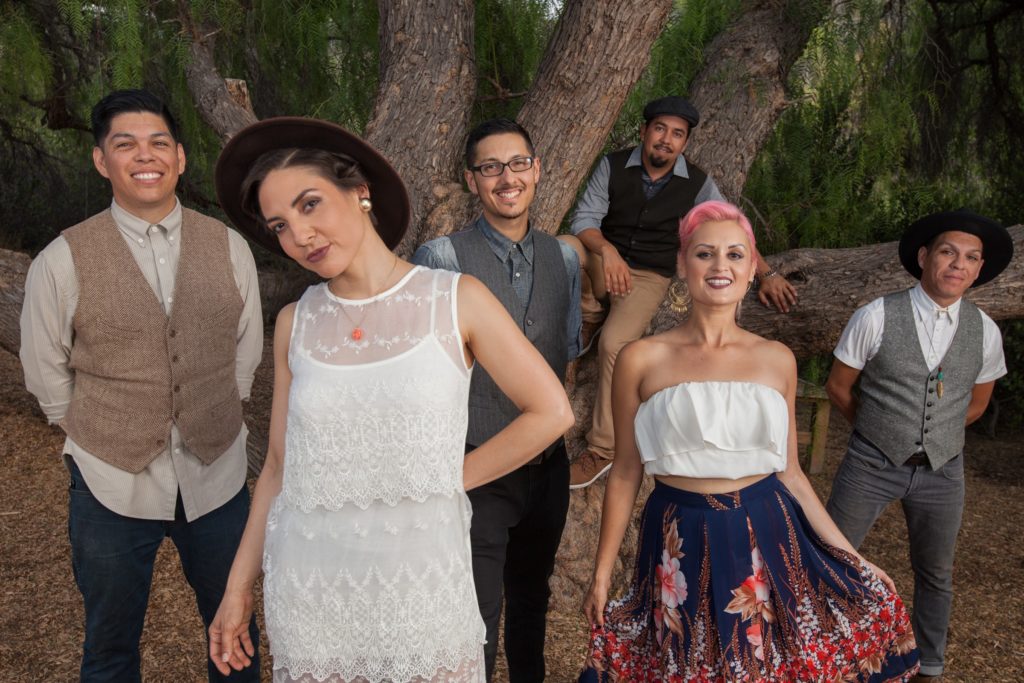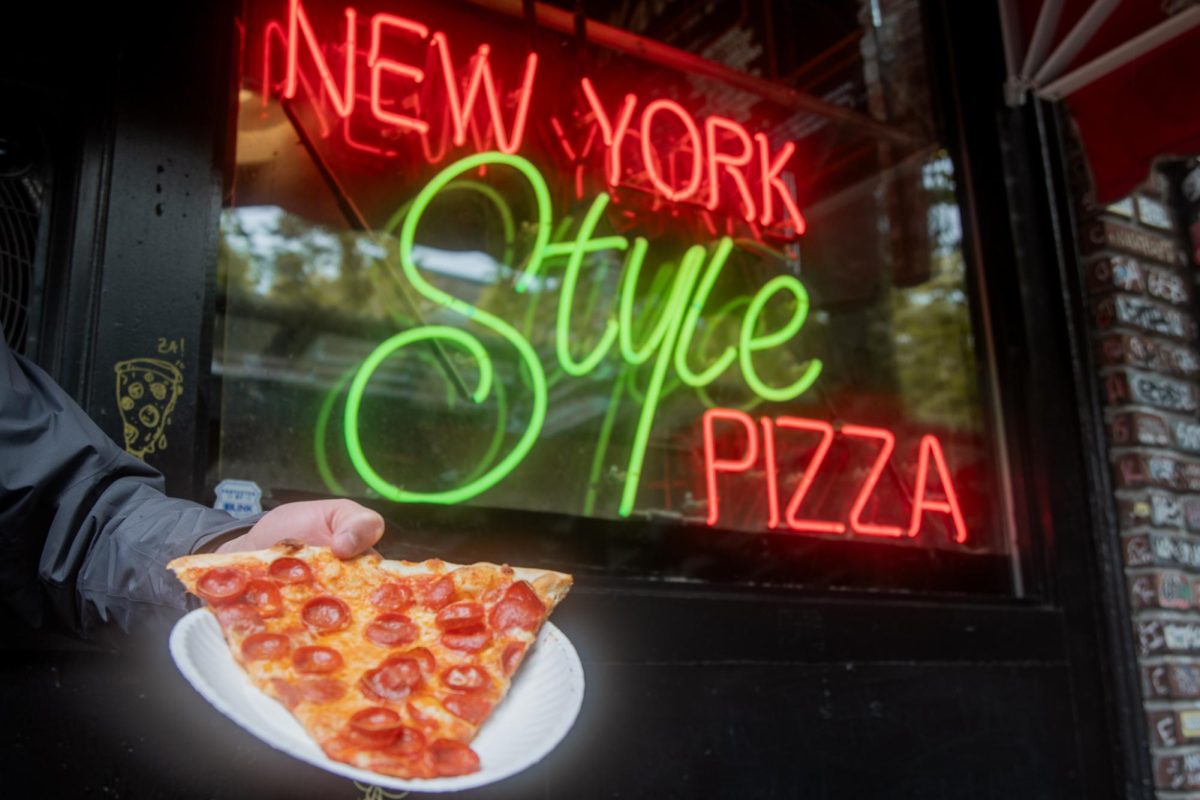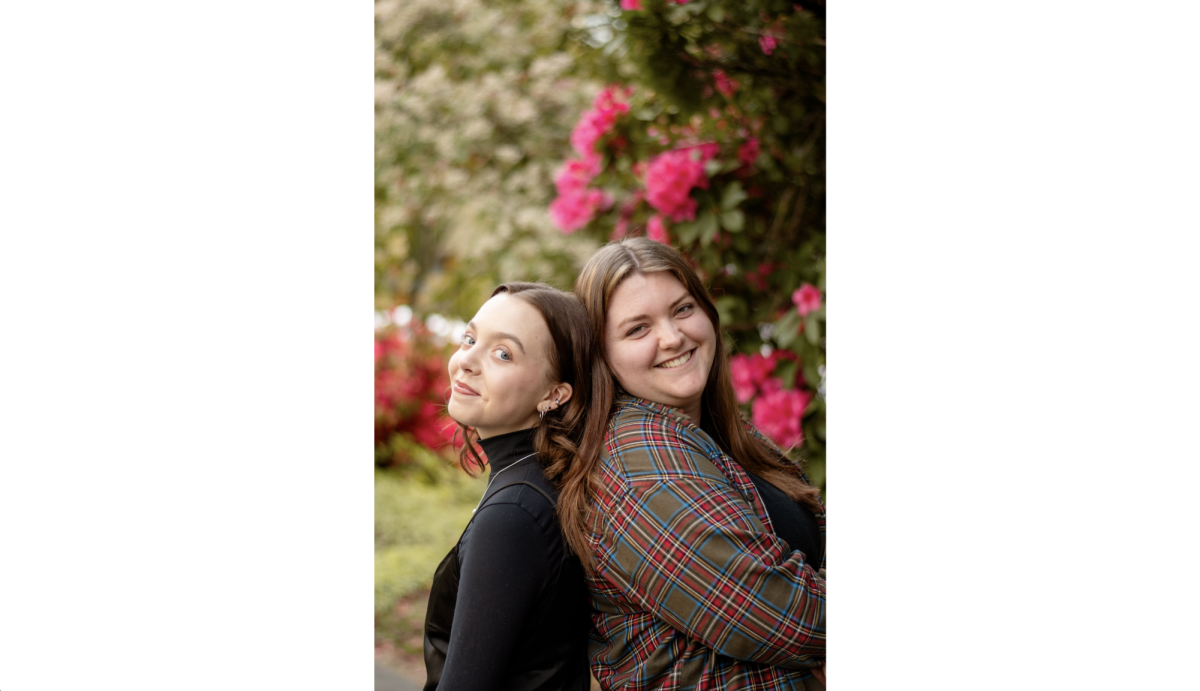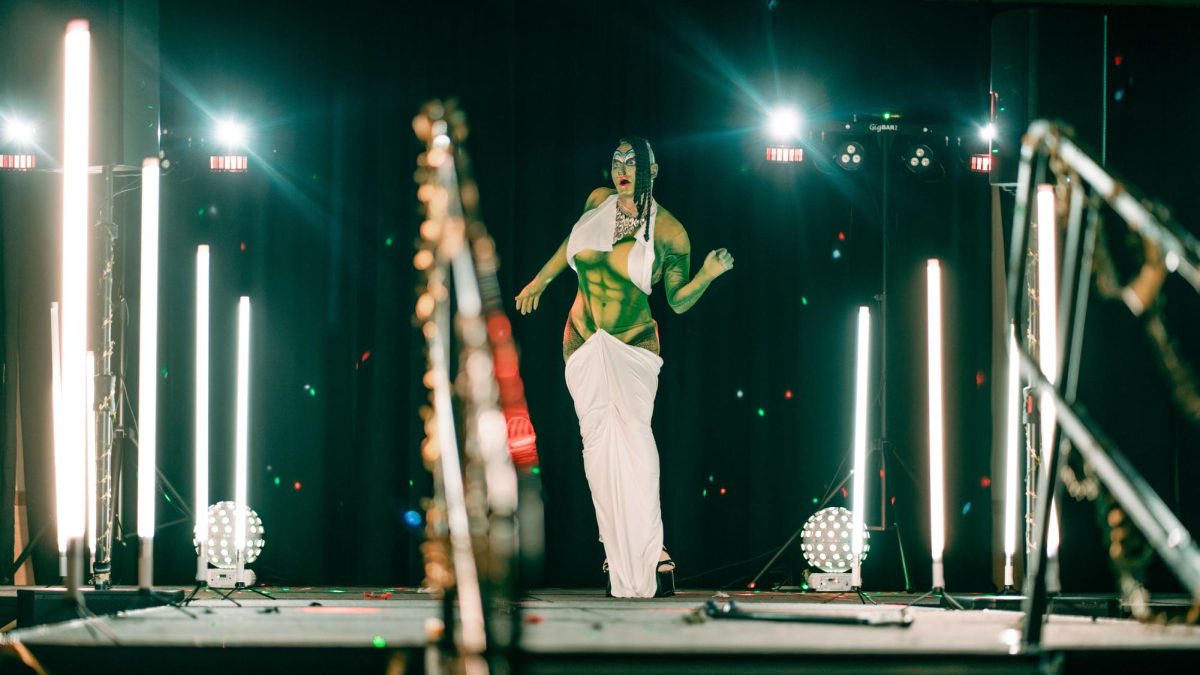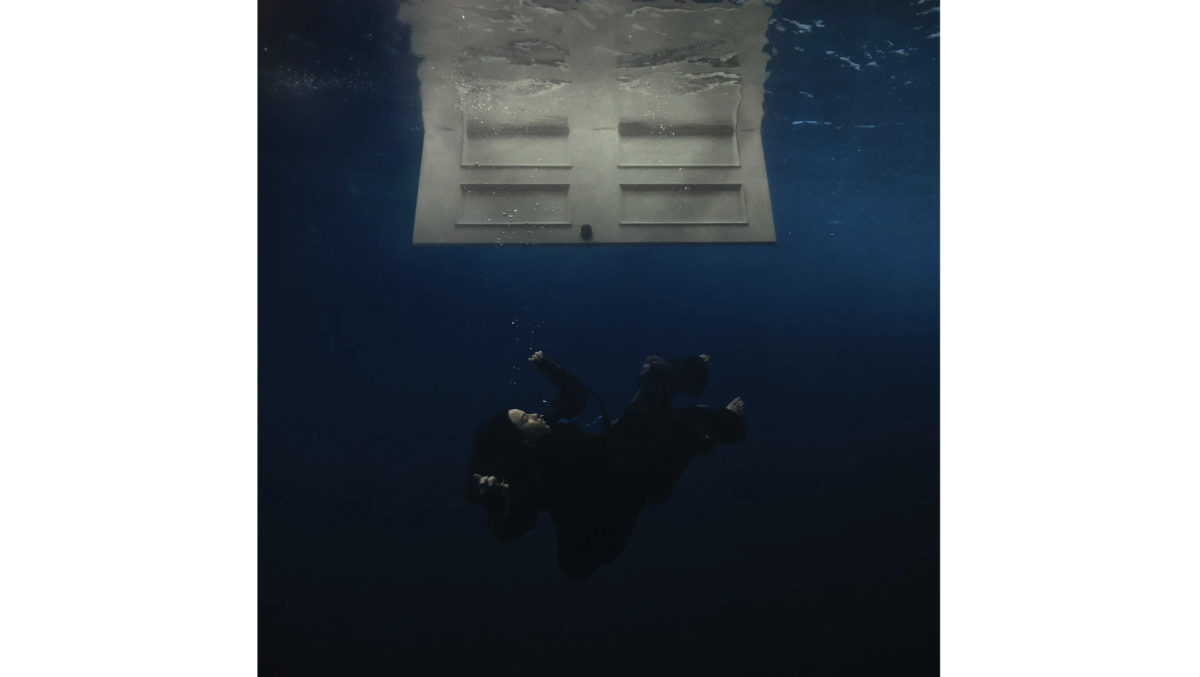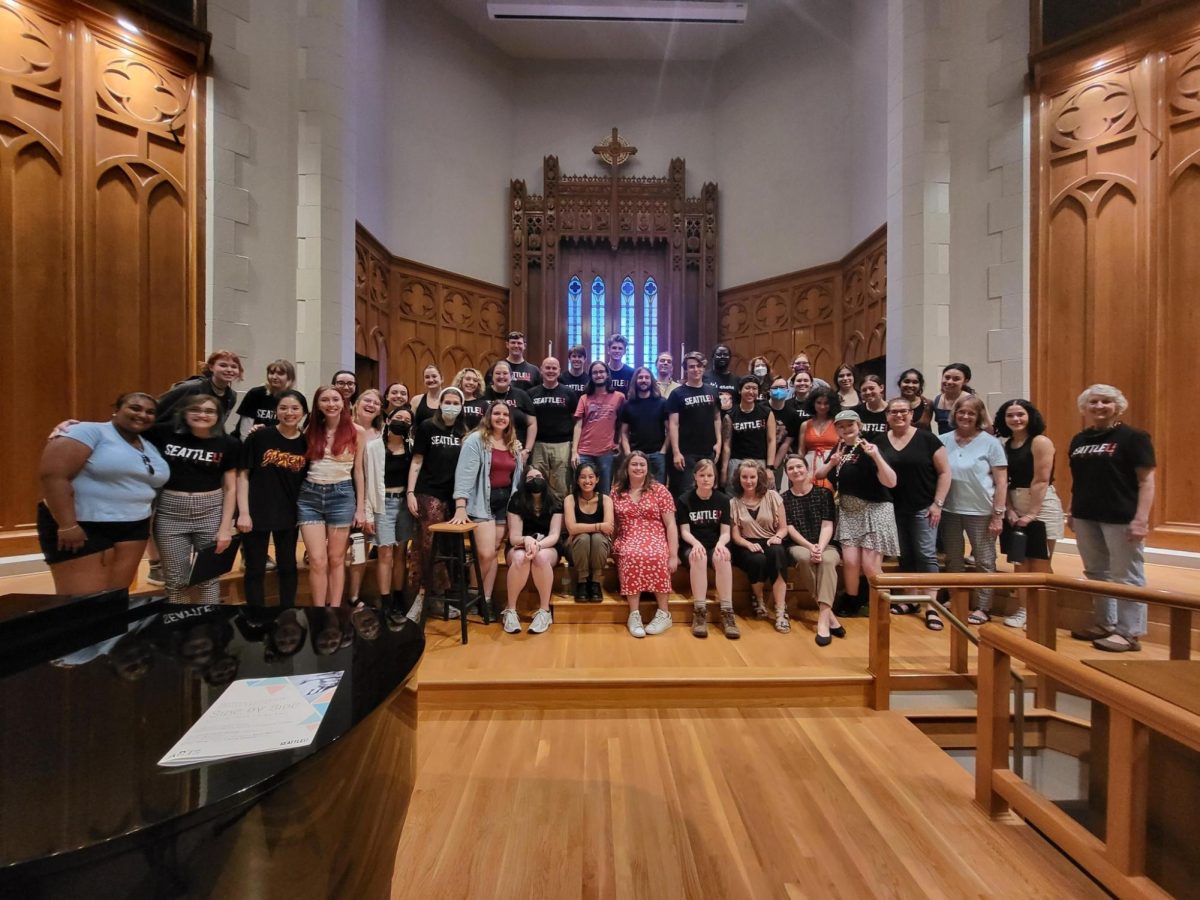Strobe lights focused on the tarima, which was placed at the center of the stage.
The tarima is a wooden platform that is used in traditional Son Jarocho music. Typically, one dances on the rectangular tarima wearing heeled shoes or boots. This zapateado dance, creating a percussive sound, adds to the music.
About three minutes later, Las Cafeteras came onto the stage. All members of the Chicano band carrying with them their instruments that are pivotal in Son Jarocho music, such as the jarana-jarocha and the leona.
Las Cafeteras, a Chicano band that originated in East Los Angeles, California, in the Eastside Café, performed at the Nectar Lounge on Saturday, April 22, showcasing their new album, “Tastes Like L.A.,” released on April 14. All tickets were sold out.
“Morenita, rezando estoy, rezando a usted…” sang Denise Carlos, wearing a colorful rebozo, shawl. “Gracias Morenita, Madre Tierra,” — “Brown woman, praying I am, praying to you. Thank you, brown woman, mother earth.”
This song, “La Morena”, translated closely in English to “Brown woman” was the band’s opening song, a track in their new album, “Tastes Like L.A.”
Whether she is praying to Our Lady of Guadalupe or Tonantzin, “Our Mother,” a group of indigenous goddesses idolized by the Nahua, it is up for the audience to decide. However, because this band usually blends folk music with spoken word that seeks to decolonize the colonizer’s attempt of erasing indigenous culture, it was probably the latter.
Following this rather slow-paced track, the group played a classic from one of their older albums.
“Ya me voy, sin dinero, ya me voy, yo no quiero, pero ya me voy,” Carlos began again. “I am leaving, without money, I am leaving, I don’t want to, but I am leaving.”
The small venue filled to it’s maximum capacity did not stop the crowd from swaying their hips and torso left to right following the rhythm of the upbeat song “Ya Me Voy” from Las Cafeteras’s 2012 album, “It’s Time.”
Hector Paul Flores, a vocalist for The Cafeteras who also dances zapateado style and plays the jarana tercera, was seen dancing across the stage, urging the audience to join him.
It didn’t take long to get the audience to follow Flores’s lead. As soon as “Ya Me Voy” began, the floor upstairs began to tremble.
Looking out at the audience, one would instantly notice the sweat that covered most faces, faces that indicated the energy involved with cumbia dancing.
Midway through the music show, the band members began their spoken word. At one point Daniel Joel Jesus French, a vocalist who plays jarana segunda for the band questioned the audience and asked what was Seattle before it became what it is today.
“Chief Seattle,” he spoke into the microphone.
The following song, “This Land is Your Land”, is dedicated to the original peoples that came before Seattleites today. After this short introduction, the band began to sing and dance to the land. Adding a little twist to the original, “This Land is Your Land” that most of the audience sang at some point in their K-12 education.
Looking down at the first level of the venue, you’d see attendees trying to move to the music while learning the new lyrics to the song.
The start of the next song, “If I Was President,” displayed a more serious audience taking a moment to reflect on recent events that have affected the nation’s political climate.
“Señor presidente le vengo a avisar no tengo papeles para trabajar, señor presidente pregunto por que matan al moreno con piel de café,” sang Carlos in a sweet high pitched voice, “Mr. President, I am here to notify you that I don’t have papers to work. Mr. President I ask why do they kill the brown people with skin-like coffee.”
Jesus French then practiced a line with the audience, a line that would be sung over and over again until everyone had perfected it while dancing to the rhythms of the traditional guitars.
“Me gusta la lima, me gusta limón, pero no me gusta cantar corrupción”, “I like yellow lime, I like green lime, but I don’t like to sing corruption.”
Hearing the audience repeat this line in sync was powerful enough to send chills up and down your spine, causing the energy of the room to rise to the roof.
As the show was coming to an end, more band members spoke about their experience when at last all members put their fist in the air and ended the powerful show.
Yesenia may be reached at
[email protected]






